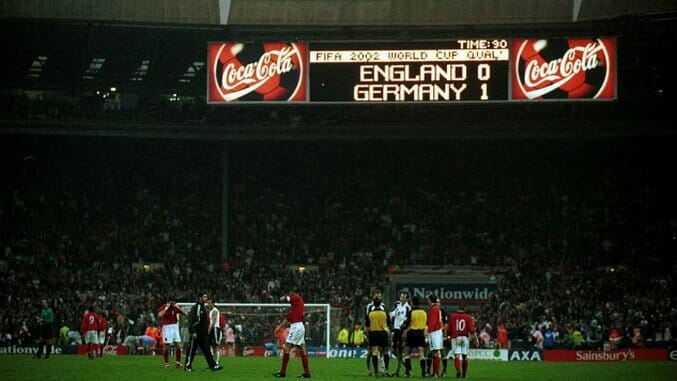Throwback Thursday: England v Germany (October 7th, 2000)
Photo by Shaun Botterill/Getty
Old Wembley Stadium hosted events for 77 years. From FA Cup Finals to The Ashes to The Olympics to Live Aid to WWE, those two iconic towers served as the pillars that held up the foundations of the earth for the better part of a decade. But it was perhaps best known as the home of the England national football team. Wembley served as the stage for England’s most memorable clashes with its greatest rival, Germany— it held both England’s biggest triumph and its most dismal defeat.
It was fitting, then, that the last match to be held at Old Wembley was between England and Germany. The result, in retrospect, seems rather fitting as well.
This week we look back at the final match played at Wembley Stadium, 16 years ago tomorrow.
It’s worth noting that this wasn’t a special farewell friendly to bid adieu to the stadium. This was a World Cup Qualifier. And it came on the heels of a disastrous Euro 2000 campaign, in which England and Germany were in the same group and both failed to qualify for the knockout rounds. So in addition to the qualifying tournament, both teams had chips on their shoulders.
-

-

-

-

-

-

-

-

-

-

-

-

-

-

-

-

-

-

-

-

-

-

-

-

-

-

-

-

-

-

-

-

-

-

-

-

-

-

-

-








































